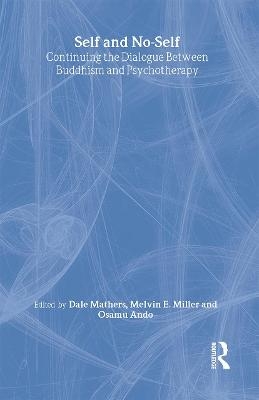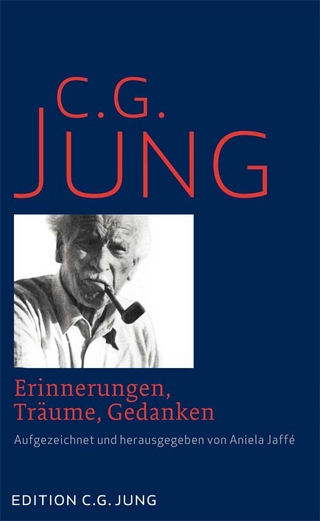
Self and No-Self
Routledge (Verlag)
978-0-415-43605-2 (ISBN)
- Titel ist leider vergriffen;
keine Neuauflage - Artikel merken
This collection explores the growing interface between Eastern and Western concepts of what it is to be human from analytical psychology, psychoanalytic and Buddhist perspectives. The relationship between these different approaches has been discussed for decades, with each discipline inviting its followers to explore the depths of the psyche and confront the sometimes difficult psychological experiences that can emerge during any in-depth exploration of mental processes.
Self and No-Self considers topics discussed at the Self and No-Self conference in Kyoto, Japan in 2006. International experts from practical and theoretical backgrounds compare and contrast Buddhist and psychological traditions, providing a fresh insight on the relationship between the two. Areas covered include:
the concept of self
Buddhist theory and practice
psychotherapeutic theory and practice
mysticism and spirituality
myth and fairy tale.
This book explains how a Buddhist approach can be integrated into the clinical setting and will interest seasoned practitioners and theoreticians from analytical psychology, psychoanalytic and Buddhist backgrounds, as well as novices in these fields.
Dale Mathers is a Jungian analyst in London. He directed the Student Counselling Service at the London School of Economics and attends the Theravada class at the Buddhist Society, London. Melvin E. Miller is Professor of Psychology and Director of Doctoral Training at Norwich University and has twice been a Visiting Scholar at Harvard Divinity School. He has a private psychoanalytic practice. Osamu Ando is Professor of Psychiatry and Psychology at Hanazono University and President of the Japanese Association for Transpersonal Psychology/Psychiatry.
Part I: Introduction. Miller, Buddhism and Psychotherapy: A Dialogue. Ando, Psychotherapy and Buddhism: A Psychological Consideration of Key Points of Contact. Gunn, Two Arrows Meeting in Mid-air. Part II: Buddhist Theory and Practice. Magid, Desire and the Self: Reflections on J. M. Coetzee’s Slow Man. Yasunaga Roshi, Zen and 'Amaeru': A Psychological Approach to Zen. Pawle, The Ego in the Psychology of Zen: Understanding Reports of Japanese Zen Masters on the Experience of No-Self. Part III: Bridges. Austin, Our Ordinary Sense of Self: Different Aspects of 'No-Self' During States of Absorption and Kensho. Perelman, Similarities, Differences and Implications in the Patient–analyst and Student–spiritual Teacher Relationship. Part IV: Psychotherapy Theory. Miller, No Self and the Emptying God: Dwelling in the Emptying Place. Young-Eisendrath, Empty Rowboats: No-blame and Other Therapeutic Effects of No-Self in Long-term Psychotherapy and Psychoanalysis. Tift, Anxiety, Struggle, and Egoic Process. Part V: Psychotherapy Practice. Van Zyl, Polarity Processing: Self / No-Self, The Transcendent Function and Wholeness. Mathers, Stop Running. Mace, Mindfulness and the Technology of Healing: Lessons from Western Practice. Wallace, Dying to be Born: Transformative Surrender within Analytical Psychology from a Clinician’s Perspective. Part VI: Mysticism and Spirituality. Shimizu, Experience of Self in Zen and Christian Mysticism. Kron, Self / No Self in the Therapeutic Dialogue According to Martin Buber’s Dialogue Philosophy. Muramoto, Muso Soseki (1275–1351): The Development of Zen Culture Out of Conflicts. Part VII: Myth and Fairy Tale. Nakamura, The Image of Mahavairocana-tatha-gata Emerging from the Therapist at a Crucial Point in Therapy. Hart, The Healing Properties of a Fairy Tale. Mathews Grant, Breaking the Spells of Self: How Insights from Fairy Tales and Buddhist Psychology can be Applied in Therapeutic Practice. Part VIII: Re-introduction. Cooper, Oscillations: Reload. Index.
| Erscheint lt. Verlag | 18.5.2009 |
|---|---|
| Zusatzinfo | 5 Line drawings, black and white |
| Verlagsort | London |
| Sprache | englisch |
| Maße | 156 x 234 mm |
| Gewicht | 524 g |
| Themenwelt | Geisteswissenschaften ► Psychologie ► Psychoanalyse / Tiefenpsychologie |
| ISBN-10 | 0-415-43605-2 / 0415436052 |
| ISBN-13 | 978-0-415-43605-2 / 9780415436052 |
| Zustand | Neuware |
| Haben Sie eine Frage zum Produkt? |
aus dem Bereich


